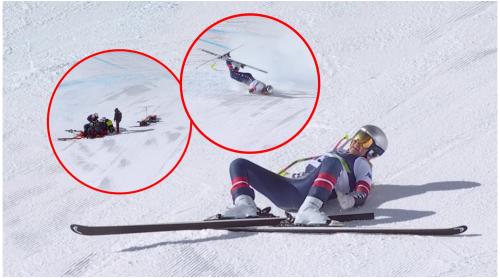
The Georgian crisis can be described as the last night of single-polarism and the first night of asymmetric multi-polarism. It is the first war of a (dis)order characterized by the competition between asymmetric centers of radiation in terms of asymmetric nature and power, which impose their priorities in an area measured by the length of the arm of each other.
The Georgian crisis can be described as the last night of single-polarism and the first night of asymmetric multi-polarism. It is the first war of a (dis)order characterized by the competition between asymmetric centers of radiation in terms of asymmetric nature and power, which impose their priorities in an area measured by the length of the arm of each other. Sparks appear when those arms touch. They start peripheral wars meant to correct the power report between the centers.
In such a context, after oscillating between global equilibrium and the recovery of relative superiority, the Euro-Atlantic democracies try to find appropriate responses to the reactivation of the Russian power. As usual, predictable events take the West by surprise, trying its reaction after its lack in initiative has been proven.
The dilemma of the Euro-Atlantic post-unipolar world confronted with the Russian - Asian neo-imperialism is the one of a choice between confrontation and conciliation. The alternative is bad for both components. Even if Russia is no longer the Soviet superpower it used to be, the direct confrontation with it costs that much that no democracy can afford it. Conciliation isn’t an option either because the Russian leaders (as, in fact, all the leaders of nations with great taste for authority and paternalist traditions) distinguish only the language of force and firmness.
Until one finds the line between the two, the West should avoid the strategy of compensation as well as the one of self-deceiving. Rewarding President Saakasvili made in order to punish the disproportionate reaction of Prime Minister-President Putin, is an unadvised adventure. After putting in jeopardy the Euro-Atlantic interests in the Caucasus, the little Georgian dictator doesn’t have the right to consume the NATO security as a member. The recent visit of Secretary General Jaap de Hoop Schefer, accompanied by a crowd of ambassadors to Tbilisi, is as dangerous a challenge as an impossible promise. Trying to keep a problematic leader in power with external support is as illegitimate and evil as an effort to send him away with a foreign intervention. Similarly, it is an error to reward the autocratic Lukashenko in compensation for the Medvedev geo-politics.
On the other hand, those who plead, quite rightly, for dialogue, should not be lying. Russia does not want negotiations for a new world order – their beginning being, perhaps, the strategic objective which caused it to accept the cost of the massive military action in Georgia and of recognizing the independence of South Osetia and Abkhazia - for the sake of the peaceful cooperation with the West, but for reaffirming, strengthening and securing its role as a Superpower. Affirming the right of Moscow to protect its protégés anywhere in the world puts multi-polarism in relationship with geo-politics based on ethnic reasons, circumscribing the national imperialism. Also, the right to establish special relations with neighboring strategic regions, acceptable in itself, suggests, however, especially by ignoring the obligation to establish such relations on mutual interests and freedom of choice, the return to the politics based on spheres of influence. From such a perspective, the multi-polar order requested by Moscow, with which the Europeans, but also some Americans, will mainly agree, threatens to become an Orwellian multi-polarism in which all poles are even, but some are more even than others. The problem has a solution! It was met before in a famous formula of Theodor Roosevelt. One can say: let’s talk gently to Russia, but keep a huge bat in our hands. This bat can be the strategic alliance between the United States of America and the United States of Europe. The EU can do the most for such an alliance to become reality and sustainable.
Citește pe Antena3.ro

















